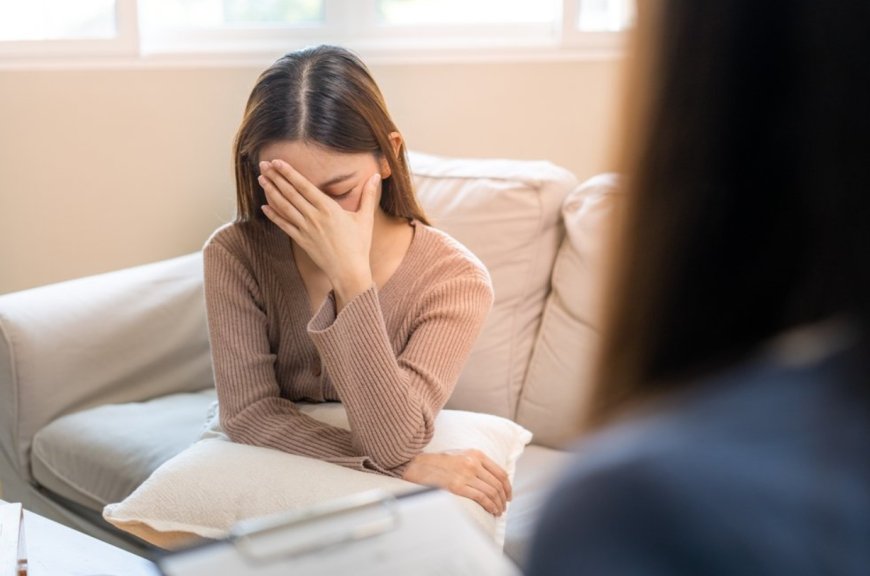Finding the Right Support: A Guide to Depression Treatment Near Me

Understanding Depression
Depression is more than just feeling sad or having a rough day. Its a serious mental health condition that affects how a person thinks, feels, and behaves. Symptoms can vary from mild to severe and may include:
- Persistent sadness or emptiness
- Loss of interest in activities once enjoyed
- Changes in appetite or weight
- Trouble sleeping or sleeping too much
- Difficulty concentrating
- Feelings of guilt or worthlessness
- Fatigue or low energy
- Thoughts of death or suicide
If youre experiencing these symptoms for more than two weeks, seeking professional help is highly recommended.
Why Search for "Depression Treatment Near Me"?
Searching for "depression treatment near me" connects you with local options for carean important step when starting treatment. Local providers offer the advantage of proximity, which makes regular appointments easier to attend and encourages consistency. Moreover, many people find comfort in seeking help from professionals familiar with their community and cultural background.
Types of Depression Treatment
When looking into treatment for depression, it's important to understand the various options available. Local treatment centers often offer a combination of the following:
1. Talk Therapy (Psychotherapy)
Talk therapy is one of the most common and effective treatments for depression. Popular methods include:
- Cognitive Behavioral Therapy (CBT): Focuses on identifying and changing negative thought patterns.
- Interpersonal Therapy (IPT): Helps patients improve personal relationships that may contribute to depression.
- Psychodynamic Therapy: Explores unconscious patterns rooted in early life experiences.
Therapists may work in private practice, group settings, or as part of a clinic or hospital team.
2. Medication
Antidepressants can be prescribed by psychiatrists or primary care doctors to help balance chemicals in the brain associated with mood. Common types include:
- SSRIs (Selective Serotonin Reuptake Inhibitors) like Prozac or Zoloft
- SNRIs (Serotonin and Norepinephrine Reuptake Inhibitors) like Cymbalta or Effexor
- Tricyclic antidepressants or MAOIs for more severe or treatment-resistant cases
It's crucial to work closely with a medical provider to find the right medication and dosage.
3. Intensive Outpatient Programs (IOPs) and Partial Hospitalization Programs (PHPs)
For individuals needing more support than weekly therapy, IOPs and PHPs offer structured care while allowing patients to live at home. These programs provide multiple therapy sessions per week and often include group therapy, medication management, and skill-building activities.
4. Inpatient or Residential Treatment
When depression is severe and may pose a risk to safety, inpatient care provides 24/7 supervision and intensive treatment. Residential treatment centers offer longer-term care in a supportive, live-in environment.
5. Alternative and Holistic Therapies
Many local providers offer or refer patients to complementary treatments, including:
- Art and music therapy
- Yoga and mindfulness-based therapy
- Acupuncture or massage therapy
- Nutritional counseling
- Exercise programs
These can be helpful when combined with traditional treatments.
How to Find the Best Depression Treatment Near You
If youre wondering how to begin your search for depression treatment, here are some practical steps:
1. Use Online Directories and Search Engines
A simple search for depression treatment near me on Google or sites like Psychology Today or Zocdoc can give you a list of local providers. You can filter by insurance, specialty, gender preference, and more.
2. Check with Your Insurance Provider
Most insurance companies have online directories where you can find mental health professionals in-network. This helps reduce out-of-pocket costs.
3. Ask for Referrals
Your primary care doctor, school counselor, or even a trusted friend may be able to refer you to a reputable therapist or clinic nearby.
4. Call Local Mental Health Clinics
Community health centers, university hospitals, or nonprofit organizations often provide affordable mental health services or sliding-scale fees.
What to Look for in a Provider
When choosing a therapist or treatment center, consider the following:
- Credentials: Are they licensed (e.g., LCSW, LPC, PsyD, MD)?
- Experience: Do they specialize in treating depression?
- Approach: Do they use evidence-based techniques?
- Comfort: Do you feel safe and heard during initial consultations?
- Accessibility: Is their office location convenient? Are telehealth options available?
You might not find the right fit immediately, and thats okay. Therapy is a personal experience, and it may take a few tries to find someone who feels right.
The Importance of Early Intervention
One of the most effective ways to manage depression is to seek treatment early. Waiting can lead to symptoms becoming more severe and harder to treat. Fortunately, local providers are increasingly accessible, especially with the rise of teletherapywhich allows you to get care from home.
If you're currently searching for "depression treatment near me," know that you're already taking a powerful step toward recovery. Seeking help is a sign of strength, not weakness.
Final Thoughts: Youre Not Alone
Depression can be isolating, but support is available. Whether youre looking for therapy, medication, or a comprehensive treatment plan, there are resources in your community ready to help. Don't hesitate to start your search todayyour well-being is worth it.
If youre in crisis or need immediate help, call or text a local crisis line or the national Suicide & Crisis Lifeline at 988 (available 24/7).








































